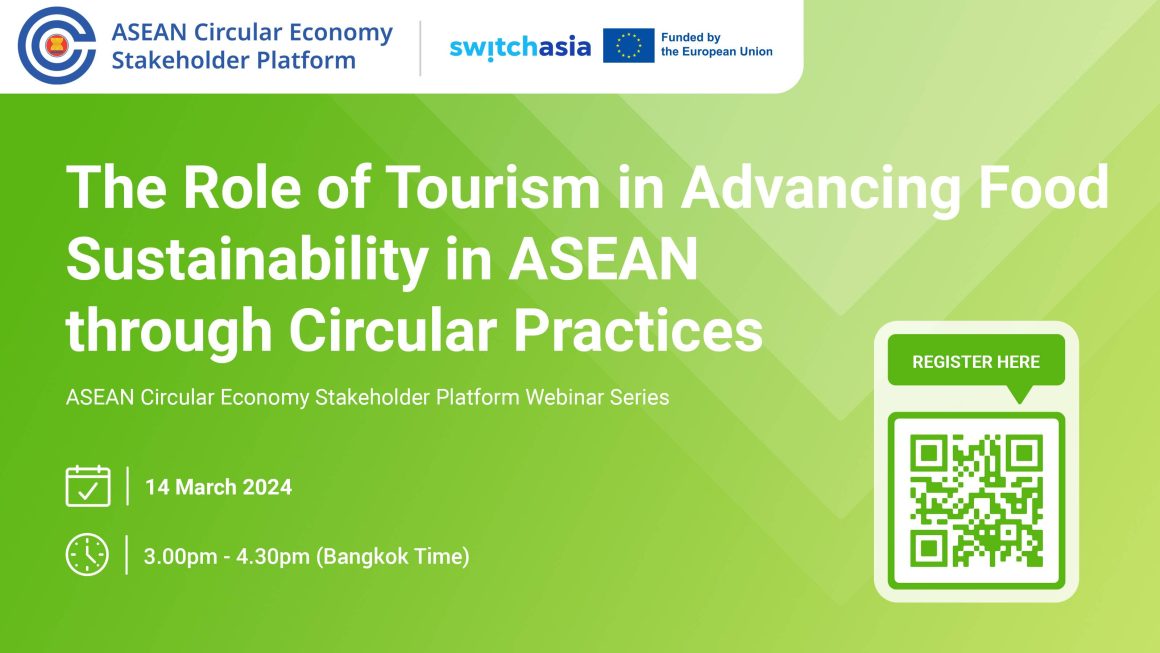WHEN: 14 March 2024 I TIME: 15:00 – 16:30 (Bangkok Time) I Platform: ZOOM I Register HERE
Background:
The ASEAN region is renowned as a prime destination for tourism and culinary exploration, boasting a rich cultural heritage, picturesque landscapes, a year-round tropical climate, and diverse culinary experiences at affordable costs. Over the years, these countries have experienced significant growth in their tourism and food sectors, contributing to their economies and fostering regional integration. However, mirroring a global trend, this expansion has been accompanied by an environmental footprint, highlighting the urgent need for the region to transform its food and tourism sectors towards a circular economy model.
The tourism sector, encompassing transportation, accommodation, amenities, and attractions, is responsible for 8% of greenhouse gas emissions, 4%-8% of waste generation, and significantly contributes to nature disturbance, land and coastal degradation, habitat destruction, littering, pollution, and the depletion of other natural resources.
Tourism plays an important role in reducing food waste and advancing food circularity, thereby aiding the transition to more sustainable and resilient food systems worldwide. It intersects with numerous aspects of food production, distribution, consumption, and waste management. By leveraging its potential, tourism can significantly impact efforts to decrease food waste and promote circularity within the food industry.
Furthermore, tourism encourages sustainable food practices among hospitality firms. Hotels, resorts, and restaurants are increasingly recognizing the importance of reducing food waste to enhance their environmental impact, save costs, and attract eco-conscious guests. Strategies such as food waste audits, portion control, and menu optimization help these entities minimize excess food production and disposal. Moreover, composting and recycling programs help divert organic waste from landfills, enhancing circularity by reintegrating nutrients into the soil.
In addition to waste reduction, tourism facilitates food circularity by distributing surplus food to those in need and sourcing more sustainable inputs. Numerous tourism businesses engage in food recovery initiatives, partnering with local food banks, shelters, and humanitarian organizations to distribute excess food that would otherwise go to waste. These efforts not only address food scarcity but also promote social equity and solidarity within destination communities. By redistributing surplus food to feed underprivileged groups, tourism fosters a more inclusive and compassionate approach to food management.
By emphasizing local supply chains, tourism bolsters local food systems, significantly contributing to waste reduction. Tourists often seek authentic culinary experiences, driving demand for locally sourced and traditional dishes. This demand encourages restaurants, hotels, and food vendors to prioritize fresh, seasonal, and locally sourced ingredients, thereby supporting local food production practices and economic growth in supplier communities. Reducing reliance on long-distance transportation and large-scale distribution networks, which often result in significant food losses, tourism minimizes the environmental impact.
Moreover, culinary tourism promotes cultural exchange and appreciation for diverse food traditions, encouraging local communities to preserve their culinary heritage and traditional food preparation methods. Highlighting indigenous cuisines and culinary techniques, tourism supports the conservation of culinary biodiversity and the sustainable use of local ingredients. This focus on cultural authenticity and gastronomic diversity increases the value of local food systems and strengthens community resilience against homogenized food trends and globalized diets.
Overall, tourism acts as a catalyst for reforming food systems to enhance sustainability and circularity. It plays a crucial role in creating more resilient, egalitarian, and environmentally sustainable food systems by encouraging local food procurement, minimizing food waste, preserving culinary heritage, and strengthening community resilience. As the tourism sector evolves, the adoption of ethical food practices will be vital in realizing its full potential as a force for positive change in the global food landscape.
Webinar Session:
The ASEAN Circular Economy Stakeholder Platform (ACESP) and the EU SWITCH-Asia Policy Support Component (co-host), are convening the webinar The Role of Tourism in Advancing Food Sustainability in ASEAN through Circular Practices with the main objective to highlight how tourism can catalyse the transformation of food systems, fostering sustainability and circularity. The webinar also aims to underscore the crucial role of tourism in promoting the development of resilient, equitable, and environmentally sustainable food systems.
About the ASEAN Circular Economy Stakeholder Platform Webinar Series
The webinar series, hosted by the ASEAN Circular Economy Stakeholder Platform and co-hosted by the EU SWITCH-Asia Policy Support Component, is strategically designed to foster the adoption of Sustainable Consumption and Production (SCP) practices in the context of the Circular Economy (CE) across the ASEAN region. Recognising the need for a comprehensive approach addressing both supply and demand aspects and bringing together diverse stakeholders, these webinars intend to raise awareness, promote understanding, and facilitate an inclusive dialogue on making the circular economy a tangible reality in the ASEAN region. Thereby, the series aims to strengthen networks and knowledge exchanges among institutions working towards shared sustainability goals.
Chair:
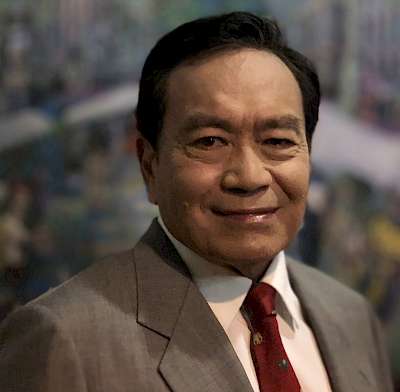 Anthony Pramualratana, ASEAN Circular Economy Stakeholder Platform
Anthony Pramualratana, ASEAN Circular Economy Stakeholder Platform
In July 2022, Dr. Anthony Pramualratana assumed the role of Deputy Executive Director at the ASEAN Centre for Sustainable Development and Studies Dialogue (ACSDSD). The ACSDSD garnered support from leaders during the 34th ASEAN Summit in Bangkok in June 2019 and was officially launched at the 35th ASEAN Summit in Bangkok in November 2019. Its primary objective is to advance research on specific sustainable development issues of mutual interest and facilitate dialogue among ASEAN Sectoral Bodies, Dialogues, and external partners, employing a comprehensive and cross-cutting approach. In September 2022, Dr. Pramualratana played a key role in establishing the ASEAN Circular Economy Stakeholder Platform, a regional facility aimed at helping ASEAN Member States (AMS) achieve sustainable consumption and production by accelerating the transition towards a circular economy.
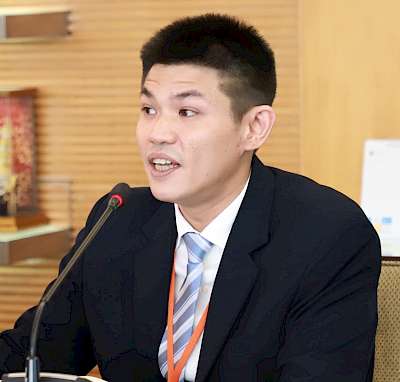 Treesuvit Arriyavat (David), Project Manager, ASEAN Circular Economy Stakeholder Platform
Treesuvit Arriyavat (David), Project Manager, ASEAN Circular Economy Stakeholder Platform
David is a PhD candidate in Management at the College of Management, Mahidol University, Bangkok, Thailand. He holds significant experience in managing projects within the ASEAN context. Currently, David serves as the project manager for the ASEAN Circular Economy Stakeholder Platform (ACESP) at the ASEAN Centre for Sustainable Development Studies and Dialogue (ACSDSD) at Mahidol University, Bangkok. In this capacity, he is responsible for establishing and overseeing the day-to-day operations of the ACESP Secretariat. This role encompasses various tasks, including project coordination, management of the knowledge and information portal, as well as communication and outreach efforts.
Moderators:
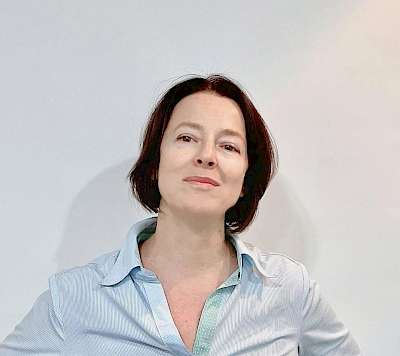 Zinaida FADEEVA, Team Leader at the SWITCH-Asia Policy Support Component
Zinaida FADEEVA, Team Leader at the SWITCH-Asia Policy Support Component
Zinaida Fadeeva is the Team Leader of the Policy Support Component of the SWITCH-Asia Programme. Zinaida has over 25 years leading international professional experience in policy for and practice of sustainable consumption and production (SCP) and Education for Sustainable Development, amongst others working with the United Nations University Institute for the Advanced Studies of Sustainability (UNU-IAS). Her work has focused on diverse topics such as tourism, plastics, construction, small and medium enterprises, procurement and lifestyle. Zinaida has worked extensively with governments, private sector, international organisations and academia in East, South East, South and Central Asia.
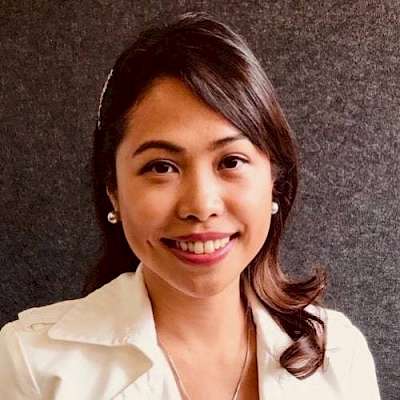 Loraine GATLABAYAN, Key Expert on SCP awareness raising and regional partnership building at the SWITCH-Asia Policy Support Component
Loraine GATLABAYAN, Key Expert on SCP awareness raising and regional partnership building at the SWITCH-Asia Policy Support Component
Loraine is the Key Expert on SCP awareness raising and regional partnership building of the SWITCH-Asia Policy Support Component of the SWITCH-Asia Programme. She did consultancy work from 2013-2018 in the Asian Development Bank, the United Nations Environment Programme – Regional Office in Asia and Pacific based in Bangkok, Thailand and the Asia-Pacific Roundtable on Sustainable Consumption and Production (APRSCP) activities, where she is currently treasurer and board member. She has also worked at the Climate Change Commission (CCC) the Philippines as Division Chief for Knowledge Management, Director of the Center for Social Policy in the Ateneo School of Government, Ateneo de Manila University, Philippines, and lead various regional, national, and local projects focusing biosafety, access rights in environmental decision- making, transparency and accountability, climate change, and resource efficiency.
Speakers
Dr.  Juthamas Wisansing, President and Founder, ASEAN Gastronomy Tourism Network
Juthamas Wisansing, President and Founder, ASEAN Gastronomy Tourism Network
Dr. Juthamas began her academic career at Prince of Songkla University in 1996 and has been a tourism lecturer for over 17 years. As the director of the Graduate School of Tourism Management at Assumption University, she established Thailand’s first PhD program in hospitality and tourism and developed the 9+1 building blocks learning toolbox for Community Based Tourism (CBT) sustainability training. With a broad impact on tourism education and management across Asia, she has led over 800 participants in Thailand through tourism marketing programmes. Currently, as the managing director and consultant of Perfect Link Consulting Group, she specializes in tourism marketing, destination branding, and sustainable tourism development, with her recent research in Tourism and Thainess contributing to Thailand’s boutique hotel and branding strategies.
Agenda
| 14 March 2024 | |
|
15:00 |
Introduction to the ASEAN Circular Economy Stakeholder Platform
Anthony PRAMUALRATANA and Treesuvit Arriyavat (David), ASEAN Circular Economy Stakeholder Platform |
| 15:05 | Revolutionising the Food and Tourism Sector: Insights from the EU SWITCH-Asia Programme
Loraine GATLABAYAN, Key Expert on SCP awareness raising and regional partnership building at the SWITCH-Asia Policy Support Component |
| 15:15 | Panel Discussion: Tourism as catalyst for food circularity
Moderated by Zinaida FADEEVA, Team Leader, SWITCH-Asia Policy Support Component |
| 15:40 | Panel Discussion: Transforming ASEAN’s tourism sector through policy measures for circularity in the agri-food industry
Elodie MARIA-SUBE, Key Expert on EU policy development and partnership building at the SWITCH-Asia Policy Support Component |
| 16:05
|
Q&A |
| 16:30 | Concluding remarks and vote of thanks
Anthony PRAMUALRATANA and Treesuvit Arriyavat (David), ASEAN Circular Economy Stakeholder Platform |


